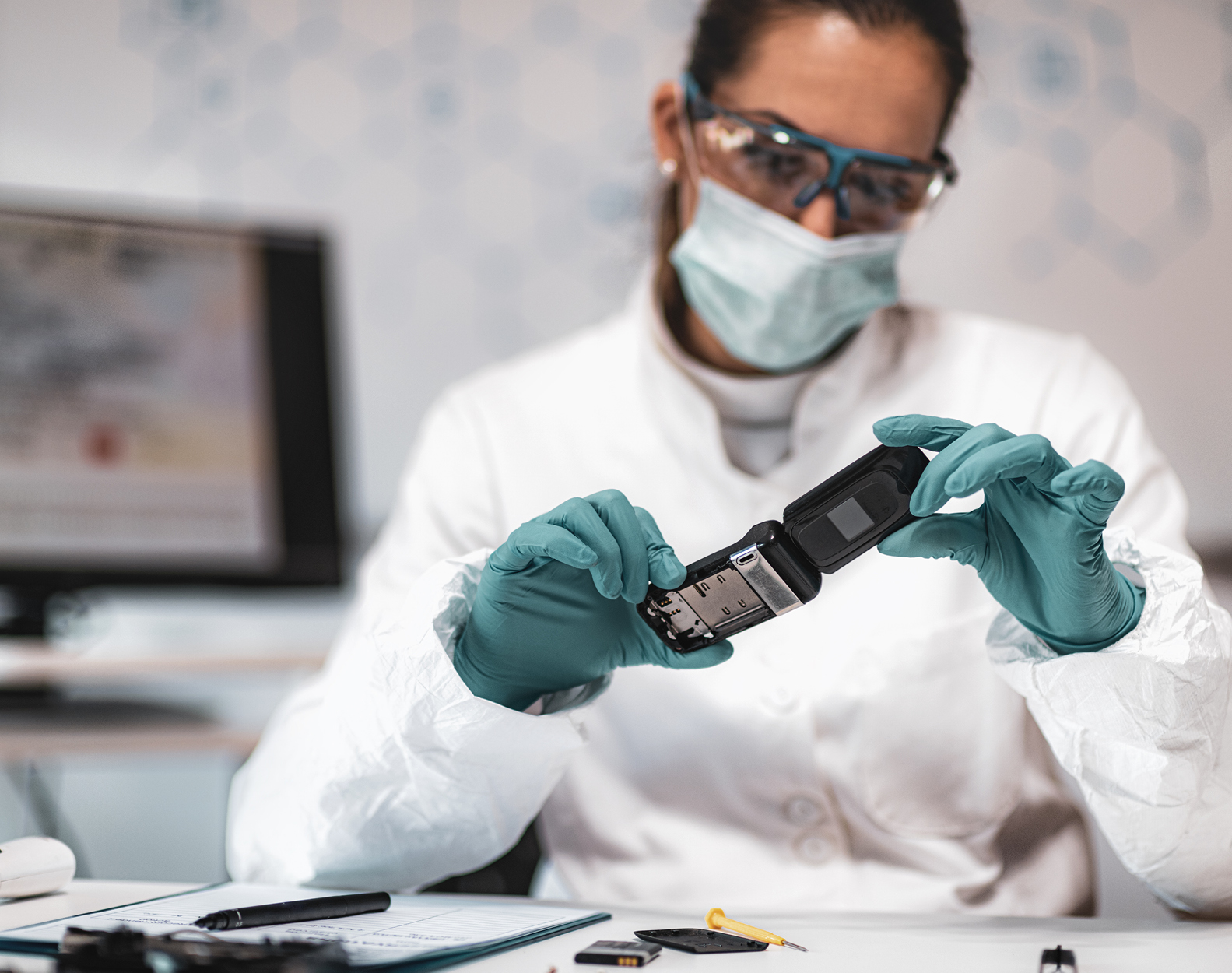
Depending on their specialties, they do a variety of tasks:
The biology section’s analysts recognize biological components (such as blood, skin, and hair) and create DNA typing profiles.
The toxicology section’s analysts examine bodily fluids like blood and urine for alcohol and other volatiles, identify and measure drugs and poisons in biological fluids and tissues, examine suspicious powders and foods, and interpret the pharmacological effects of a drug or drug combination on a specific person. They identify biological materials (for example, blood, skin, and hair) and develop DNA typing profiles.
Analysts in the trace evidence section recover non-biological trace evidence in clothing or in samples from crime scenes. They then identify them or compare them to other materials. Analysts in the firearms section determine whether an ammunition component has been loaded into, or fired from, a particular firearm, assess the mechanical condition and legal status of firearms, analyze gunshot residue and bullet paths, and more.
Average Hourly
$40.05
Range Hourly
$34.54 – $52.98
Average Yearly
$78,099
Range Yearly
$67,353 -$103,306
Biological technologists and technicians (2221)
Chemical technologists and technicians (2211) (overlapping field)
</p.
Forensic examiner - alcohol, Forensic handwriting expert, Forensic laboratory technician, Biological forensic laboratory technologist, Crime Laboratory Analyst
A bachelor's and/or postgraduate degree or college diploma in physical or biological science.
Low
Employment outlook is fair in most provinces. More information is available here.
Some of the technologists and technicians who assist governmental and academic biological research are college graduates.
The mobility of jobs within this category is rather low.
1-2 years of relevant experience are usually required
University Undergraduate Programs
- University of Toronto, Mississauga: Forensic Science Honours (Hons) BSc program
- University of Windsor: Honours Bachelor of Forensic Science or Combined B.A. Honours in Forensics
- British Columbia Institute of Technology: Bachelor of Science Combined Honours in Biochemistry and Forensic Science (joint – with UBC) and Bachelor of Technology in Forensic Investigation
Employer differs based on provincial policies.
The RCMP, the Canada Revenue Agency, the provincial governments may employ forensic laboratory analysts, and some private forensic labs.
In Alberta, the Medical Examiner's Office is in charge of conducting autopsies and completing toxicological analyses in situations where foul play is not suspected. All other forensic lab work is carried out by the RCMP (except in Ontario and Quebec).
According to the University of Alberta website, The RCMP website is the best place to get started. In fact, to gain employment within this industry one must and usually have experience with the RCMP or local police forces.
Detailed information is provided here.